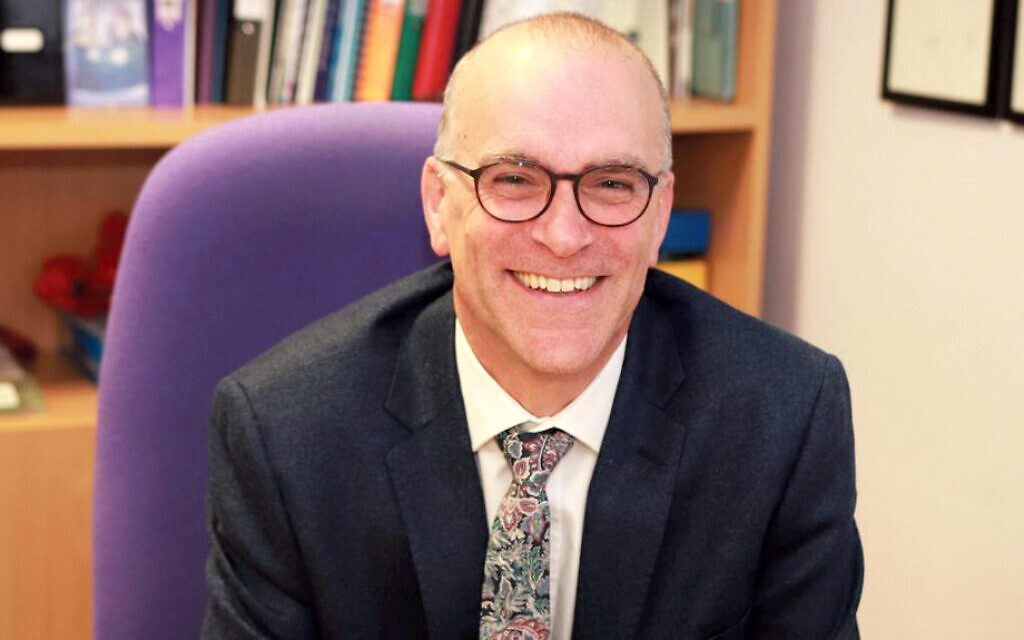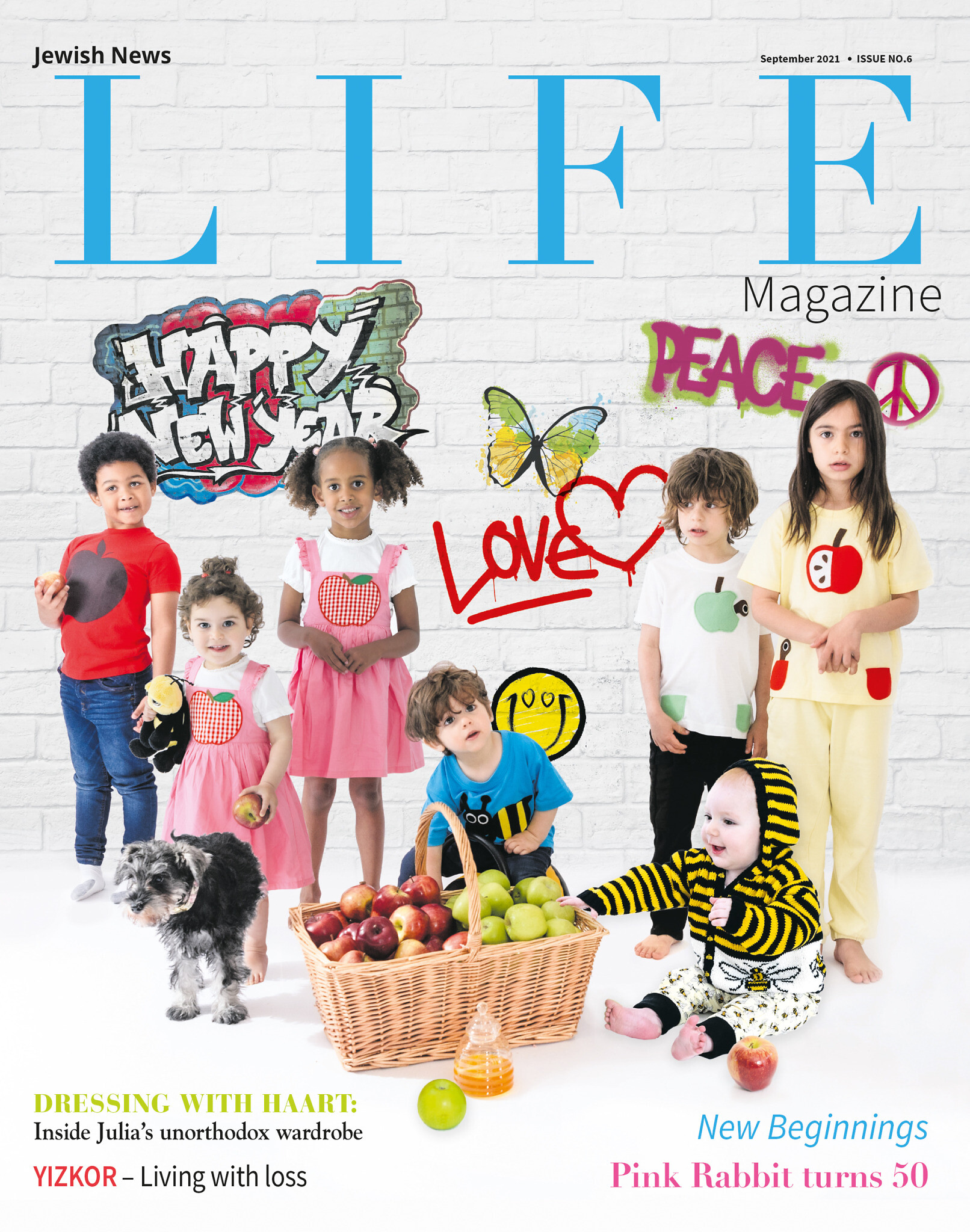Pandemic life lessons for teachers and students
Patrick Moriarty, headteacher of JCoSS, believes the impact of the pandemic on individuals is a story yet to be told, but he can see a silver lining
If you want to make Hashem laugh, they say, set out your plans. For 5782, just setting out your term dates might do the trick. The month of September affords only five full school days in four school weeks, as if either the Almighty did not deign to look ahead or – even after the assorted disruptions of the past 18 months – there are divine priorities even more important than a smooth start to the academic year. You decide.
In truth, the rhythms of the Jewish calendar lend themselves well to the patterns of self-evaluation in schools. As in life, so in education, Tishrei is the time to reflect on the previous year’s “what went wells” and “even better ifs”. As in life, so in education, the outcomes we choose to spotlight will determine our evaluations and the plans we make for the future.
Schools typically look at metrics from results or recruitment, attendance or admissions, budget or behaviour, but in a year when nothing was typical, a different set might be more suitable. What was the impact on safeguarding concerns, for instance, or extracurricular provision; what changed in voluntary contributions, perhaps, or in the use of supply teachers to cover absence?
Get The Jewish News Daily Edition by email and never miss our top stories Free Sign Up
Those are all valid things to count, and they reflect the sort of experiences reported among Jewish schools in the past year. But often what counts most in the ruach of a school is things that can’t be counted, or at least not precisely. One thing we have lost count of is the number of times we’ve used the word ‘unprecedented’.
It’s been a tough time for all involved in schools – staff, students or parents – and, like everyone else, we have done a lot of making a lot of things up as we have gone along. That makes for constant change and uncertainty, often cited as enemies of well-being, but it also throws us all into doing things that unexpectedly turn out to be rather a good idea. Top of the bill for things we wish we had tried long ago are online parents’ evenings. It’s hard to find a teacher or a parent anywhere who now wants to go back to the queues, sharp elbows, passive-aggressive tutting and general aggravation of the traditional consultation evening. There’s one item that has been on my ‘to-do’ list since 2013 that can at last be ticked off.
Another is the vague sense that we really ought to explore the potential of online learning – you know, just in case. Not just lessons, but meetings of disparate colleagues or governors, or with busy parents, even across continents and time zones, are a standard part of the repertoire that will be here to stay, at least as part of a mixed economy. Some fear that in the process we have killed off that rare serendipitous treat, the Snow Day. We’ll have to think about that.
Perhaps it is the vantage point of the summer holidays, but the more I look, the more silver linings I perceive. Separate year group bubbles were a monumental irritation – sometimes cutting swathes out of classroom time to facilitate the choreography of lesson changeover. We are all glad to see that go (it was informally dubbed ‘the fandango’ at JCoSS), but we’ll keep the lanyards that identify what year students are in, and the separation of playgrounds, which led to marked improvements in lunchtime behaviour.
That horror of horrors, the ‘staggered lunchtime’ also moved from the ‘over my dead body’ category to the ‘well, needs must…’ category: there, too, we might seek a middle way that reduces the carnage of 1,300 Jewish teenagers in simultaneous quest for food, but is less disruptive of extracurricular activities.
Even in the darkest depths of last year, it is possible to see points of brightness. The devastating increase in safeguarding concerns (in some schools five-fold) has prompted a rethink of the structures needed to respond to the mental and emotional pressures on young people. The shame of Everyone’s Invited has forced schools to confront demons hiding in plain sight, and to start giving a voice to things previously unspoken.
As across society, so in schools, the pandemic has exaggerated pre-existing difficulties and gaps, and none of these silver linings can obscure the real hardships and tragedies that have been endured. There is irredeemable loss and grief that will play out in all sorts of ways in the months and years ahead. The long-term impact on the psyche of society and of individuals is a story yet to be told.
I expect that impact to fall unevenly – and to affect teachers as well as those they teach. It would not be a surprise if the past 18 months has hastened departures from the profession, especially at the most senior level (literally no headteacher I know seems able to recall that module where they taught you how to cope in a global pandemic). But it would also not be a surprise if others have discovered talents or capacities they did not know were there.
That is why I still want to resist talk of a ‘traumatised generation’. Not only does such terminology risk bringing about the very thing it wants to avoid, but it is also not a true reflection of the schools I know. The resourcefulness, ingenuity and indomitability of students and colleagues has been miraculous, and that gives me enormous hope for the future, not just for schools but for what will be achieved by the leaders of tomorrow who are currently being formed within them.
So, somewhat battered but unbowed, we continue to plan, to reflect on past shortcomings in a spirit of learning, to look for sweetness in the academic year ahead.
One metric stands out for me from 5781, namely a marked increase in expressions of gratitude from parents and students alike. That speaks of a deepening of partnership, an appreciation of shared values and a world built on kindness. It’s enough to bring a smile to the face of Hashem.

Thank you for helping to make Jewish News the leading source of news and opinion for the UK Jewish community. Today we're asking for your invaluable help to continue putting our community first in everything we do.
For as little as £5 a month you can help sustain the vital work we do in celebrating and standing up for Jewish life in Britain.
Jewish News holds our community together and keeps us connected. Like a synagogue, it’s where people turn to feel part of something bigger. It also proudly shows the rest of Britain the vibrancy and rich culture of modern Jewish life.
You can make a quick and easy one-off or monthly contribution of £5, £10, £20 or any other sum you’re comfortable with.
100% of your donation will help us continue celebrating our community, in all its dynamic diversity...
Engaging
Being a community platform means so much more than producing a newspaper and website. One of our proudest roles is media partnering with our invaluable charities to amplify the outstanding work they do to help us all.
Celebrating
There’s no shortage of oys in the world but Jewish News takes every opportunity to celebrate the joys too, through projects like Night of Heroes, 40 Under 40 and other compelling countdowns that make the community kvell with pride.
Pioneering
In the first collaboration between media outlets from different faiths, Jewish News worked with British Muslim TV and Church Times to produce a list of young activists leading the way on interfaith understanding.
Campaigning
Royal Mail issued a stamp honouring Holocaust hero Sir Nicholas Winton after a Jewish News campaign attracted more than 100,000 backers. Jewish Newsalso produces special editions of the paper highlighting pressing issues including mental health and Holocaust remembrance.
Easy access
In an age when news is readily accessible, Jewish News provides high-quality content free online and offline, removing any financial barriers to connecting people.
Voice of our community to wider society
The Jewish News team regularly appears on TV, radio and on the pages of the national press to comment on stories about the Jewish community. Easy access to the paper on the streets of London also means Jewish News provides an invaluable window into the community for the country at large.
We hope you agree all this is worth preserving.
-
By Brigit Grant
-
By Laurent Vaughan - Senior Associate (Bishop & Sewell Solicitors)
-
By Laurent Vaughan - Senior Associate (Bishop & Sewell Solicitors)
-
By Laurent Vaughan - Senior Associate (Bishop & Sewell Solicitors)
-
By Laurent Vaughan - Senior Associate (Bishop & Sewell Solicitors)























